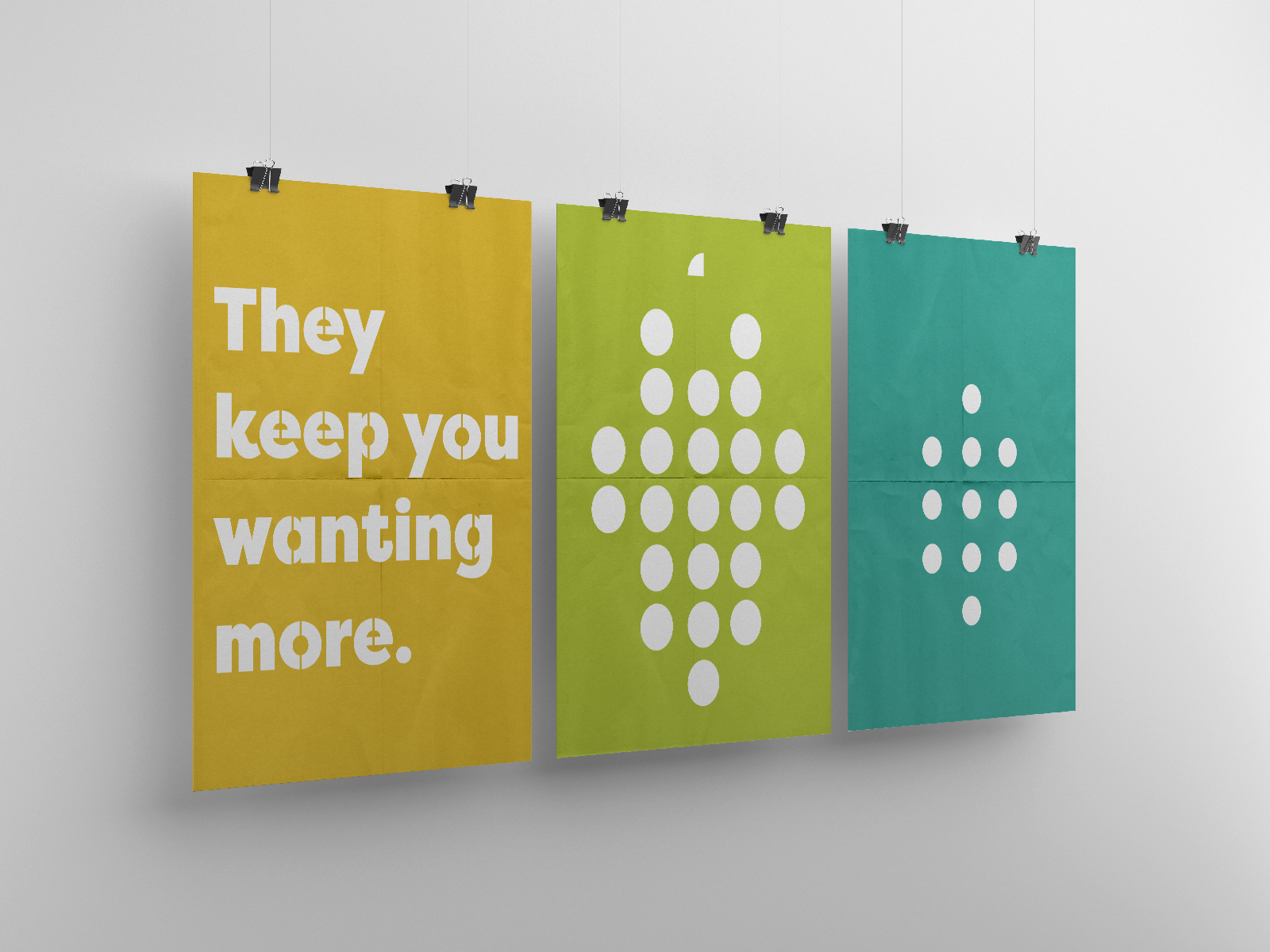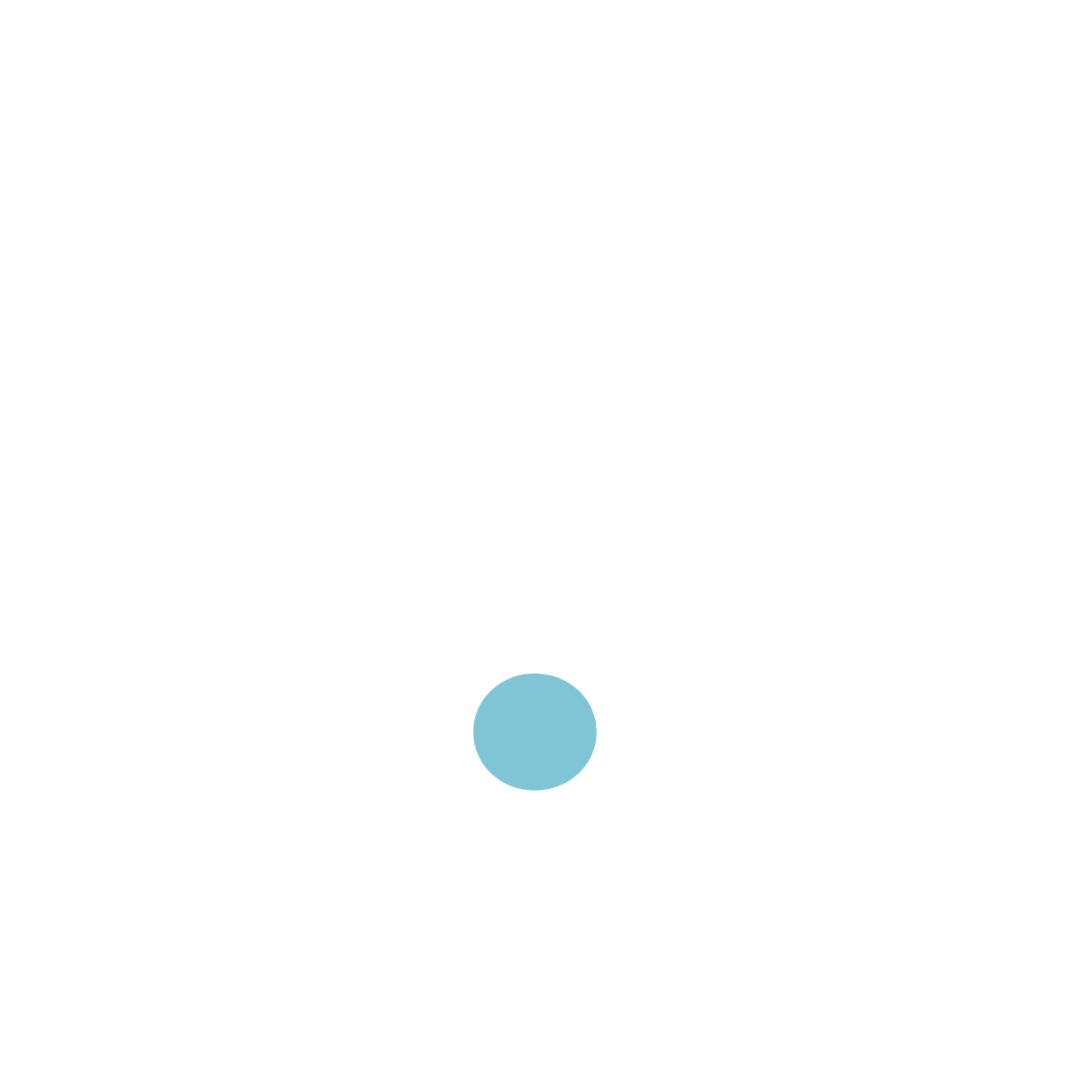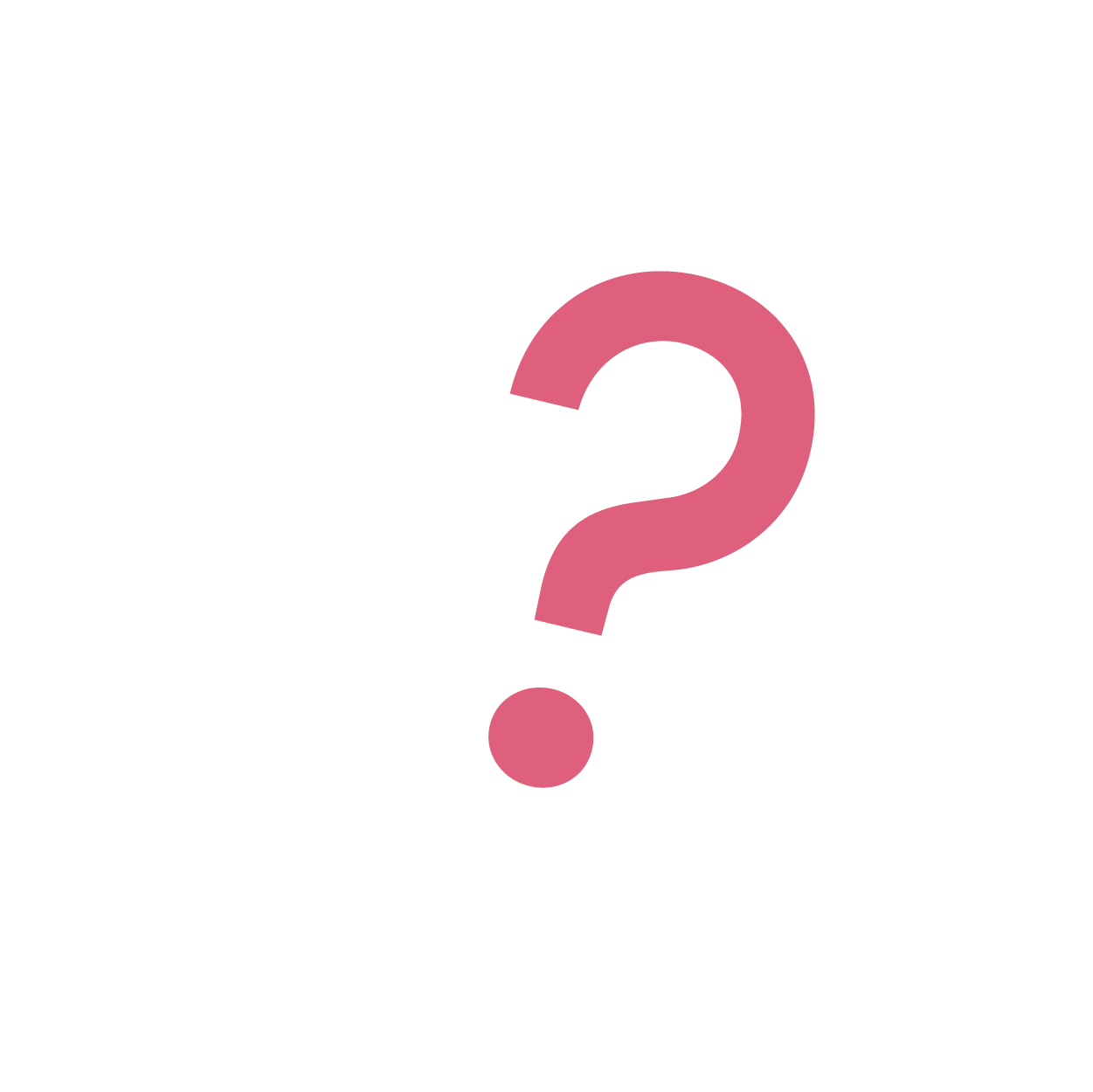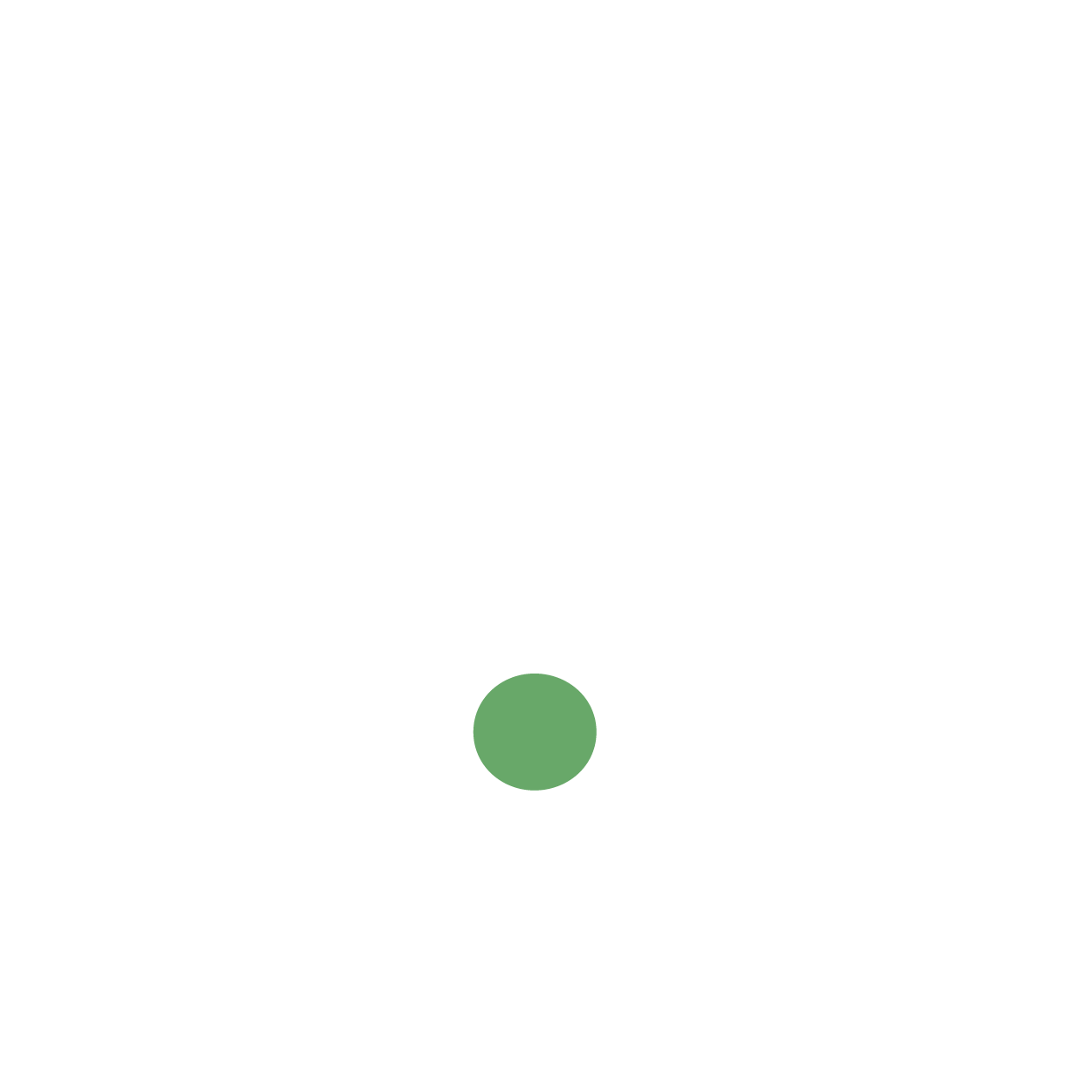FULL TRANSPARENCY
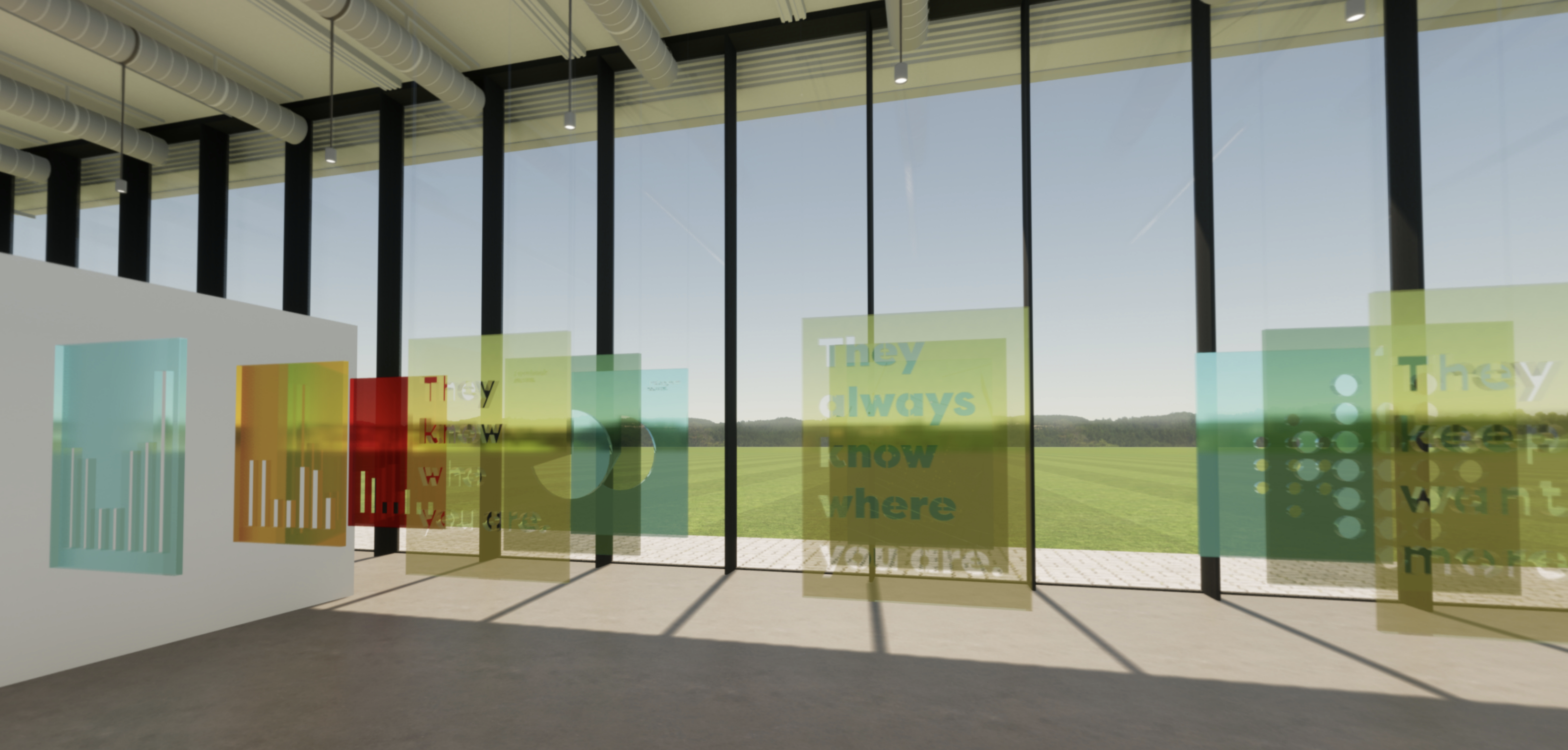
Dis(Connected) shows how social media has been an invaluable technological tool throughout the course of the pandemic — acting as a tool of connection, education, and provide a sense of normalcy. But while it has been beneficial, their use present underlying systemic exploitation that seems incalculable, and therefore not often scrutinized.
Full Transparency is a series of multi-colored laser-cut plexiglass posters, bringing to light the lack of transparency social media
Full Transparency is a series of multi-colored laser-cut plexiglass posters, bringing to light the lack of transparency social media
applications share with their users on the amount of data collected through their use.
This work was made in collaboration with Jan Kathleen Reyes for the Rutgers University-Newark Capstone Virtual Exhibition: Intertwined, click here to view the exhibition.
This work was made in collaboration with Jan Kathleen Reyes for the Rutgers University-Newark Capstone Virtual Exhibition: Intertwined, click here to view the exhibition.
DIS(CONNECTED)
Full Transparency is just one part of a larger encompassing project called DIS(CONNECTED).
Although the internet has been an invaluable technological tool throughout the course of the pandemic — acting as a tool of connection, education, and provide a sense of normalcy — it has become apparent that the longer we stay connected to our devices and social media outlets, the more disconnected we become to reality. There is a blurred line appearing between us and the mobile apps we use on a daily basis, with our consumption growing greater by the day.
More explicitly, Social Media, which has made it possible to connect with the world, filled the void of what was lost at the hands of quarantine, seen most during the 2020 COVID-19 pandemic
Although the internet has been an invaluable technological tool throughout the course of the pandemic — acting as a tool of connection, education, and provide a sense of normalcy — it has become apparent that the longer we stay connected to our devices and social media outlets, the more disconnected we become to reality. There is a blurred line appearing between us and the mobile apps we use on a daily basis, with our consumption growing greater by the day.
More explicitly, Social Media, which has made it possible to connect with the world, filled the void of what was lost at the hands of quarantine, seen most during the 2020 COVID-19 pandemic
that required us to isolate and practice social distancing. And with the lack of human interaction, the gravitation towards digital platforms took over. And while the use of social media can be beneficial, their use presents underlying systemic exploitation — invasions of privacy for example — that seems incalculable, and therefore not often scrutinized.
Dis(connected) will help people see it clearly.
View the accompanying pieces: Unplug and Connecting.
Dis(connected) will help people see it clearly.
View the accompanying pieces: Unplug and Connecting.
THEY WANT TO KEEP YOU HERE.

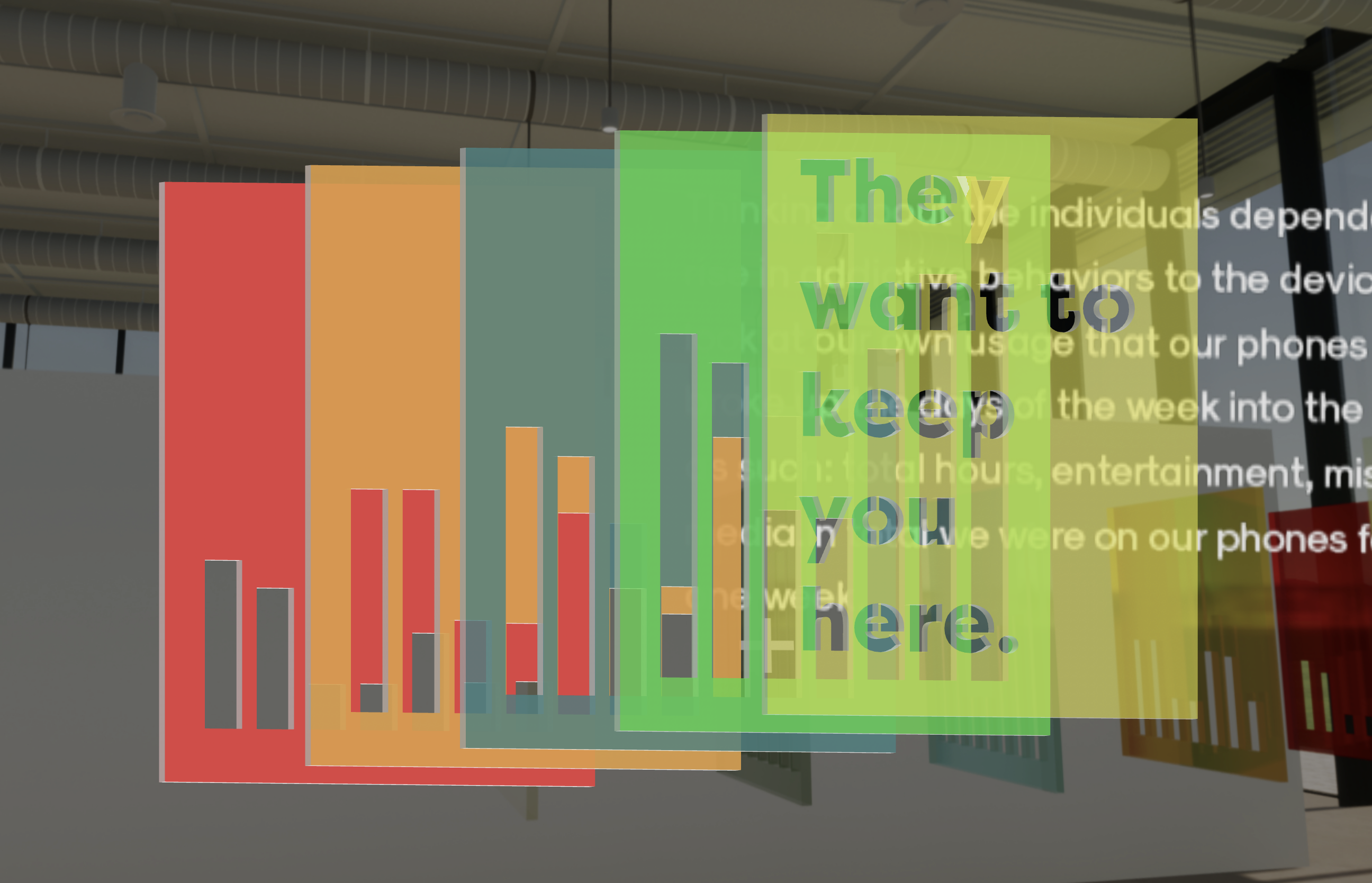
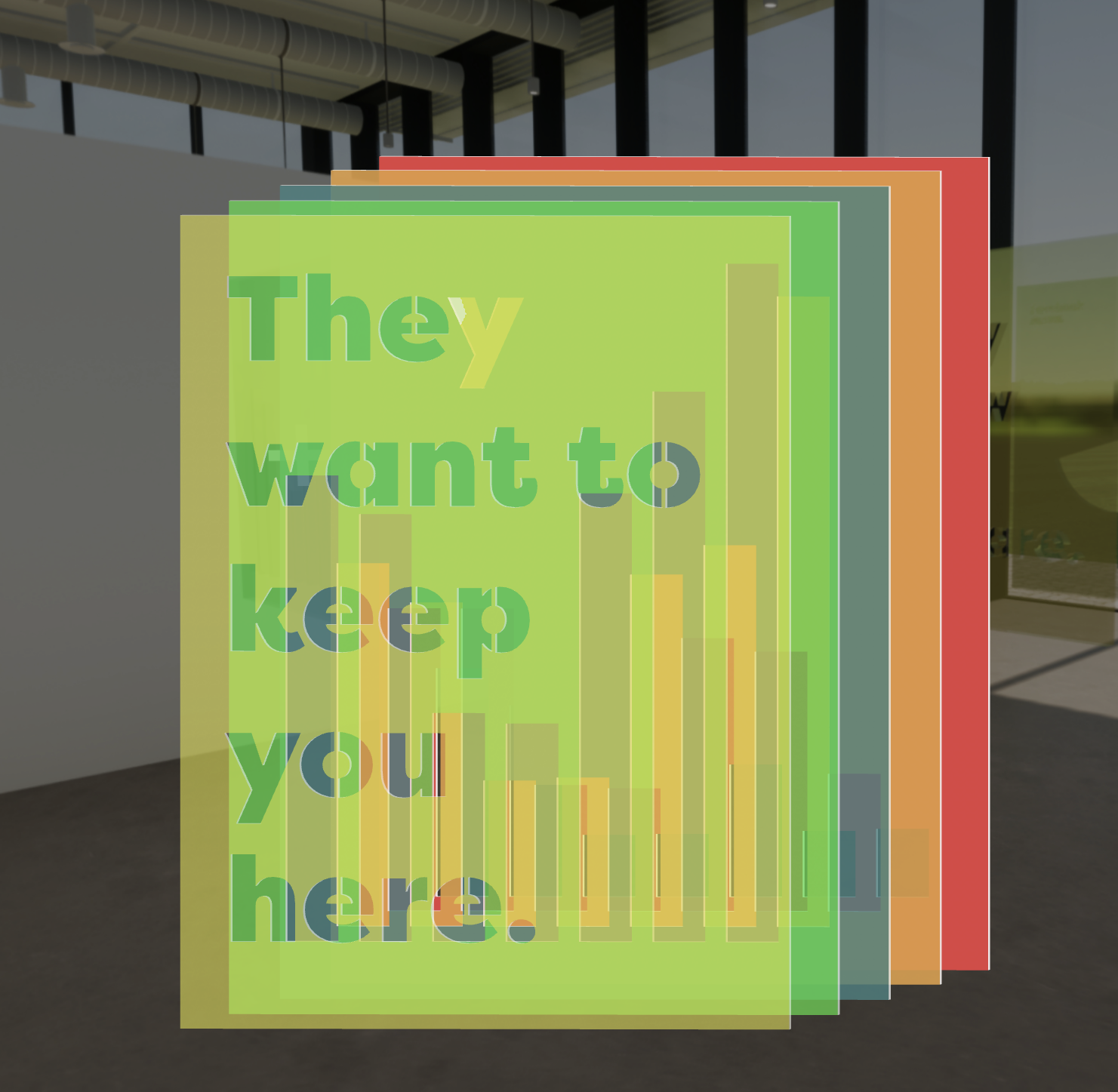
Thinking about the individuals dependancy on technology and the rise in addictive behaviors to our devices, we decided to take a look at our own phone usage and look at the data our phones collect on us for a given week. We broke the days of the week into columns each layer
reading as such: total hours, entertainment, miscellaneous and social meda. Through our research and data gathering we found out that we were on our phones for a total of 114.16 hours combined.
Veiw the posters in augmented reality.
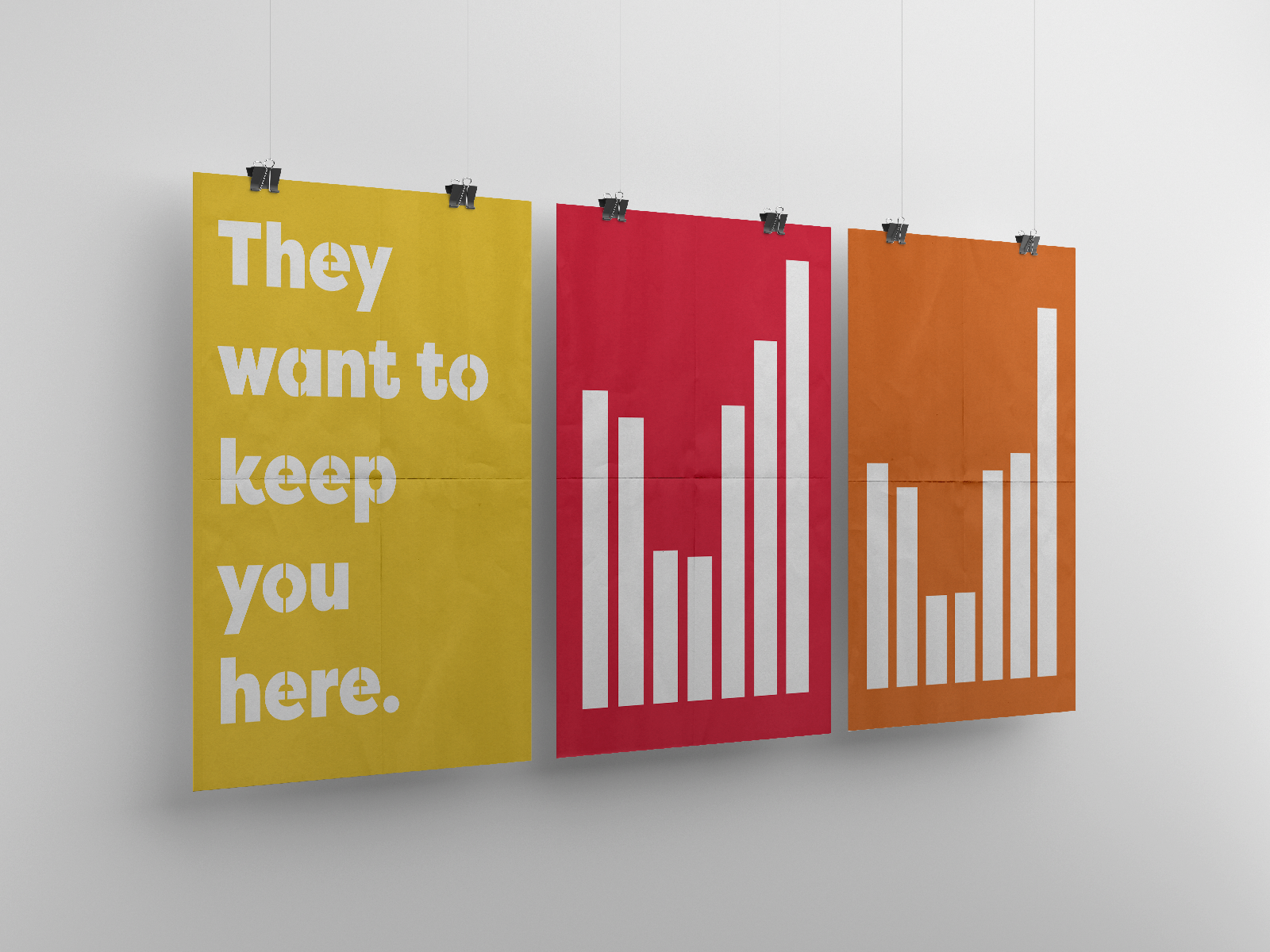
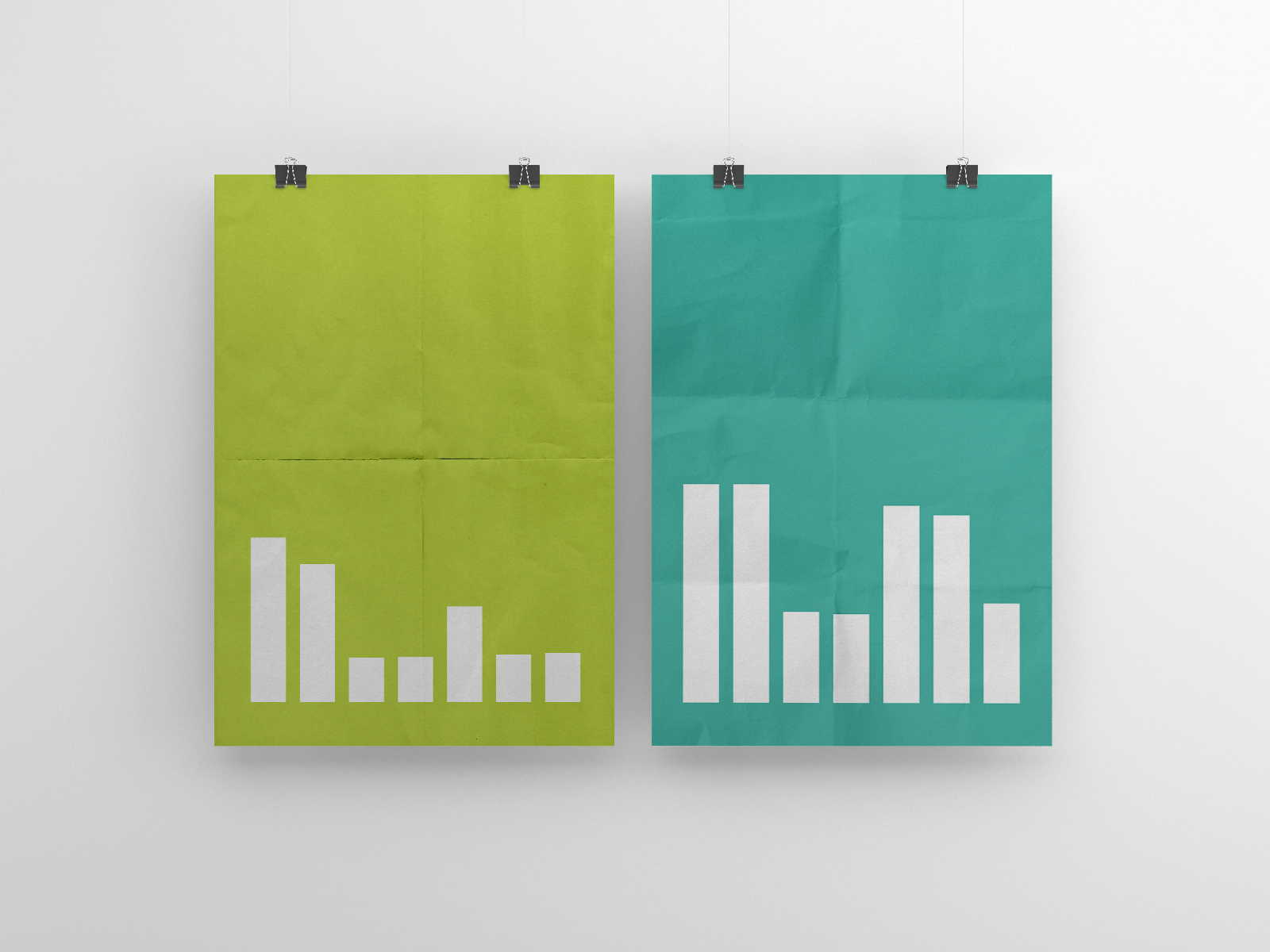
THEY KNOW WHO YOU ARE.

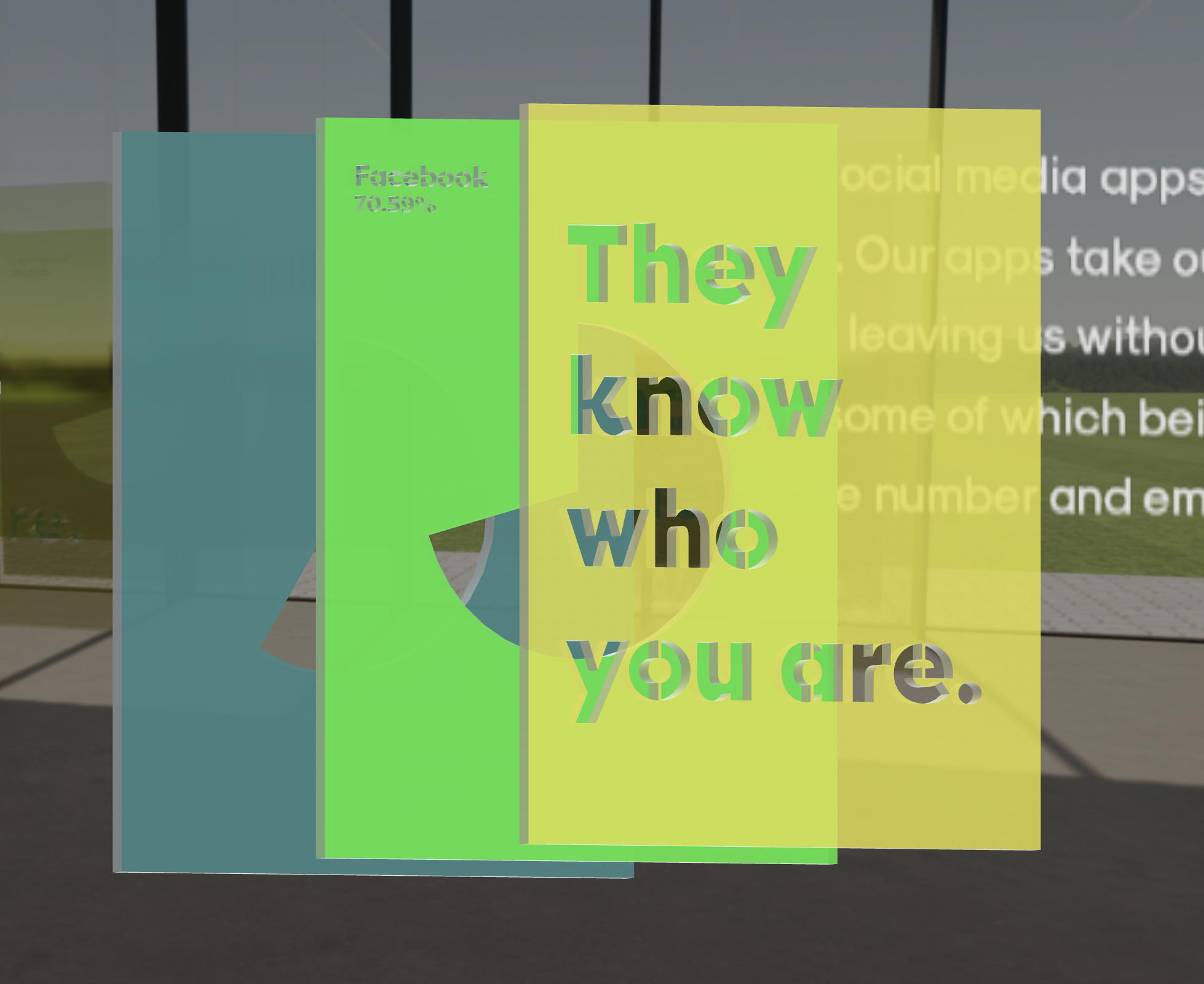

Our social media apps know a lot more about us than we may think. Our apps take our information adn sell it without our knowledge, leaveing us with privacy or control over our own information. Just two of the apps highlighted here are Facebook taking 70.59% of our personal data and
Instagram taking about 55.88%. Such information taken includes: email, bank account details, phone numbers, past employers and more. View the posters in augmented reality.
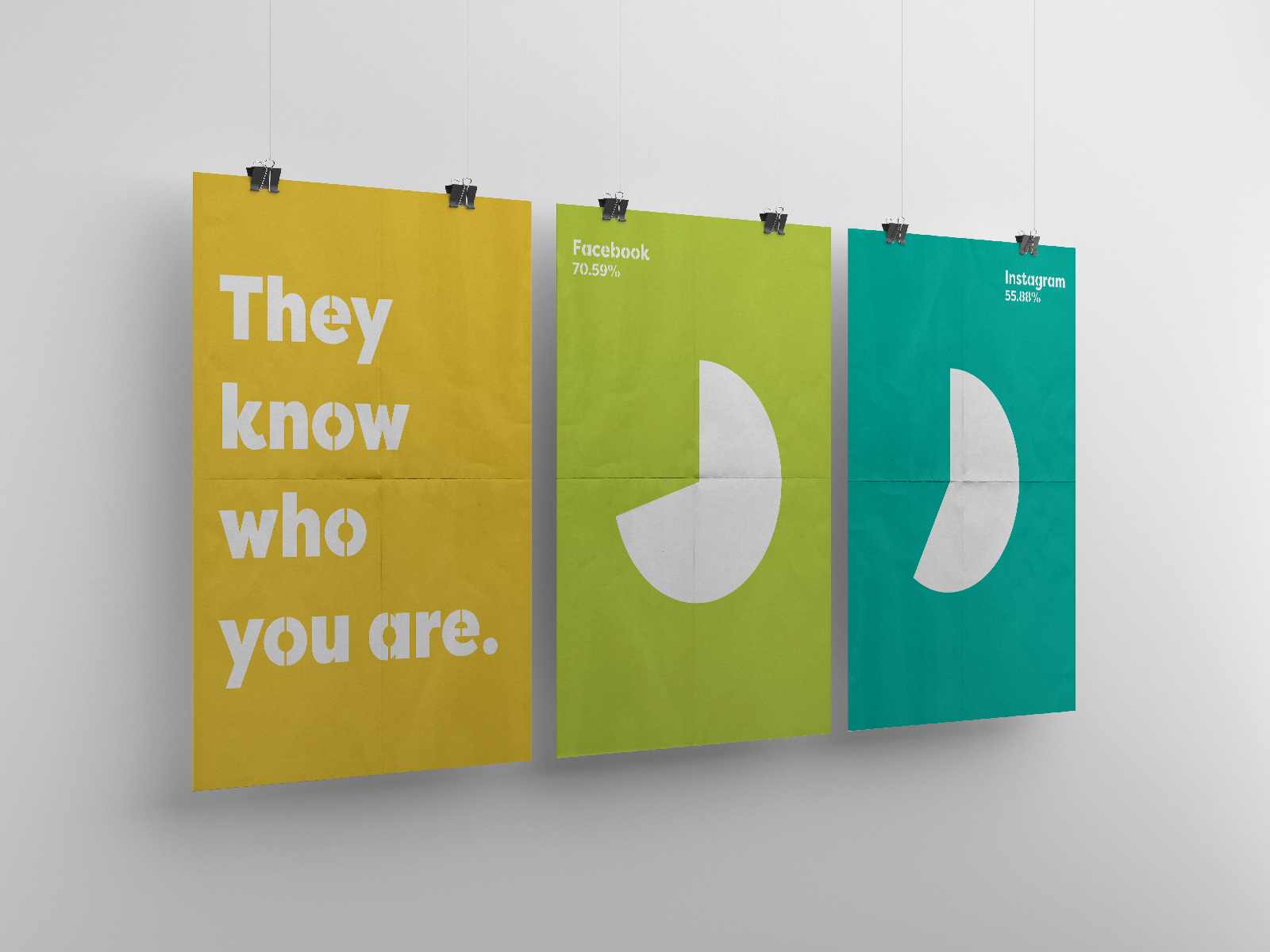
THEY ALWAYS KNOW WHERE YOU ARE.
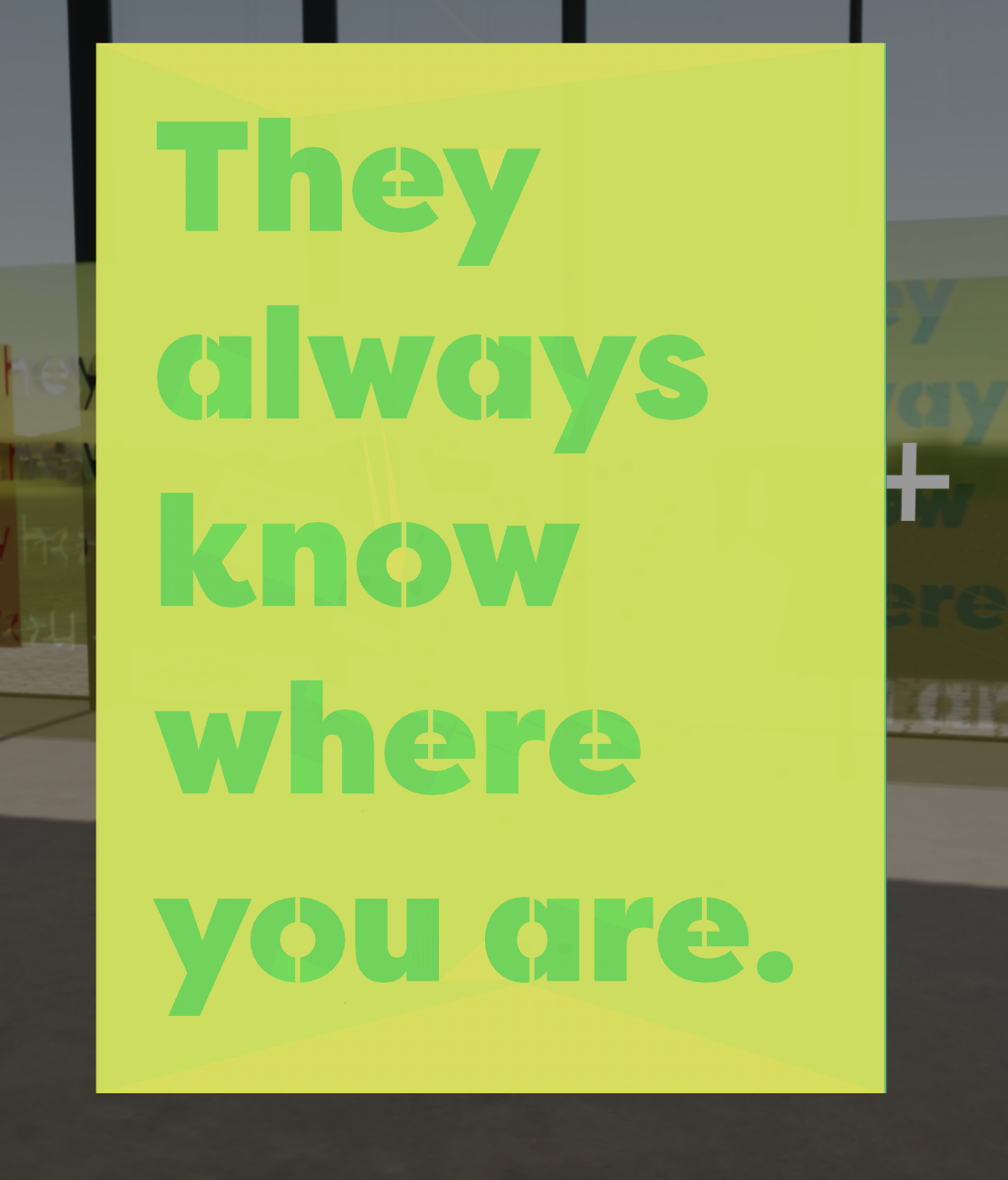
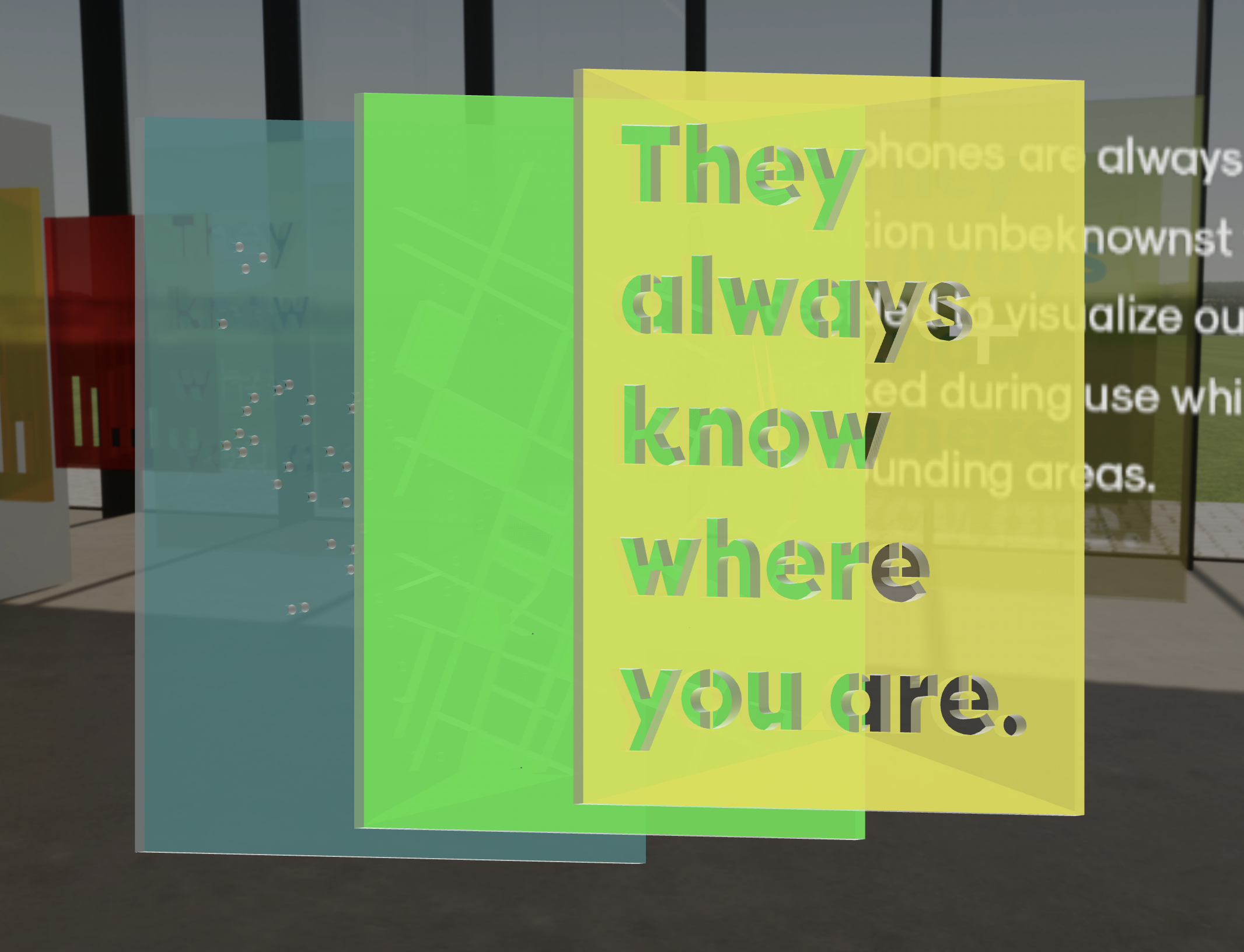

Our phones are always keeping track of our location with live location unbeknownst to most users. With this information in mind we decided to visualize our own data and how are phones can be tracked whilst
around the Rutgers-Newark campus and surrounding areas. View the posters in augmented reality.
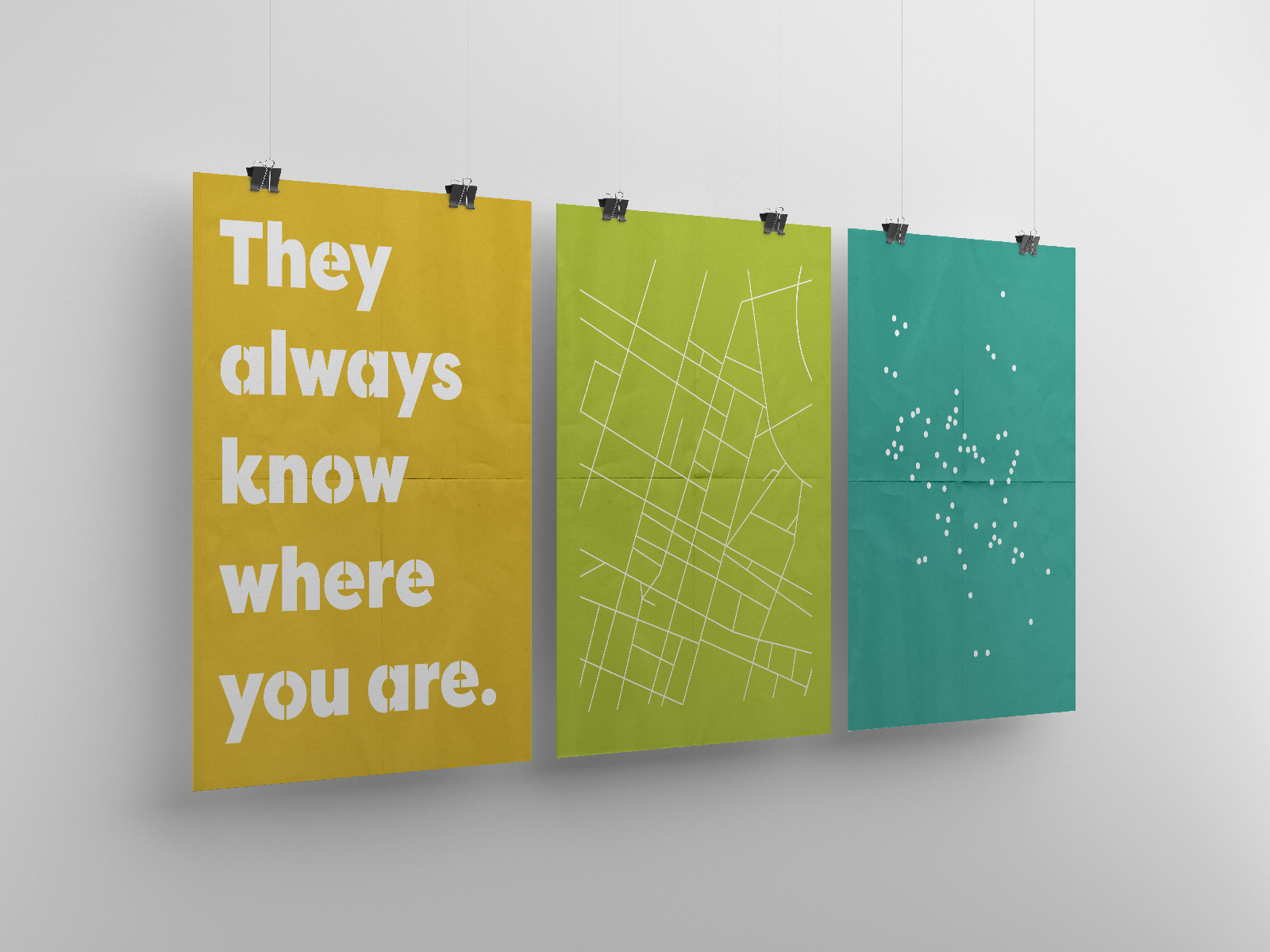
THEY KEEP YOU WANTING MORE.


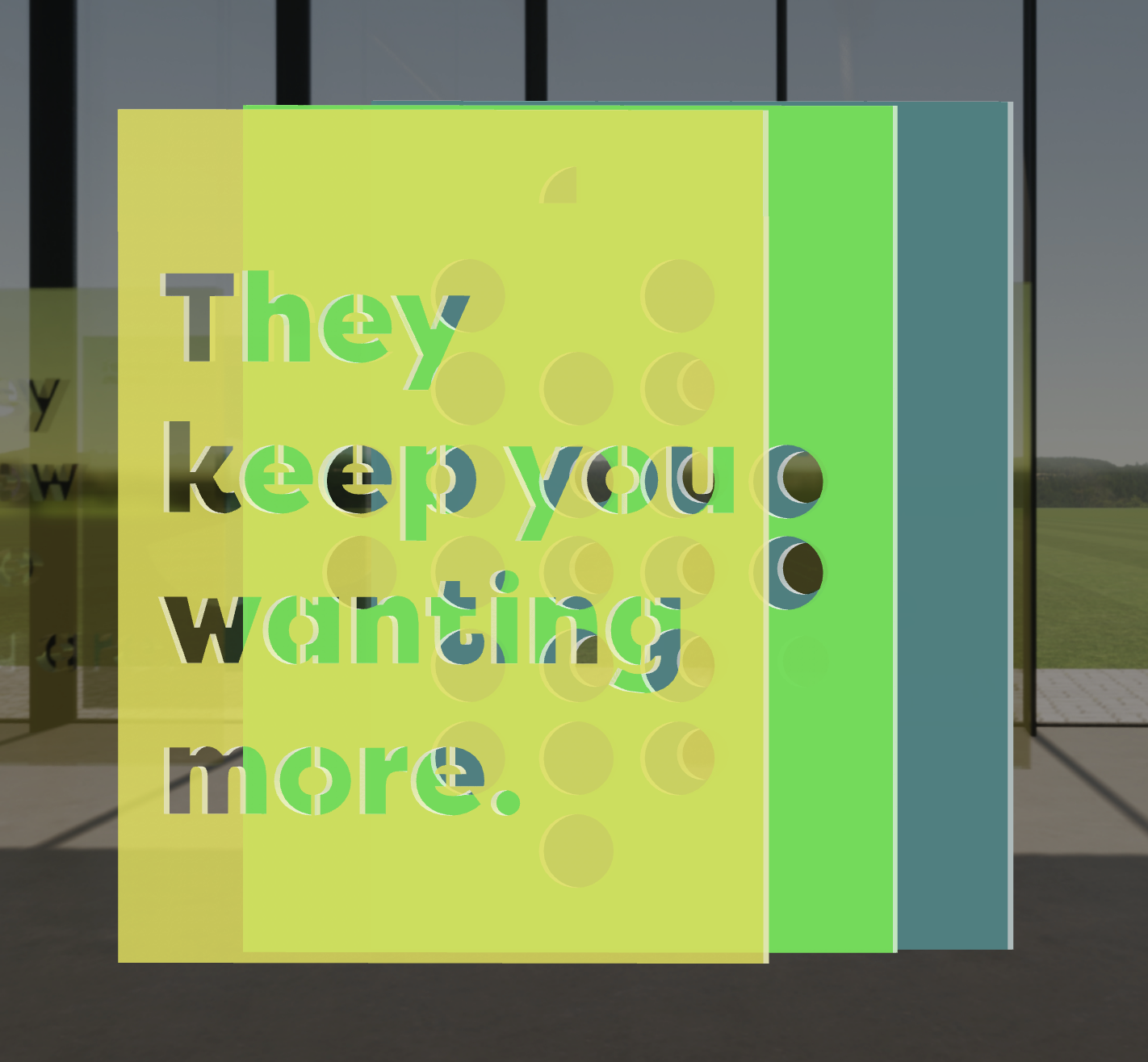
Our phones track when a notification pings and when we actively pick up the phone in response to its notification. There is a sense of instant gratification that comes with the addictive effects that social media
has on its users. In there posters 1 dot is equivalent of 100 notifications and/or pick ups. View the posters in augmented reality.
